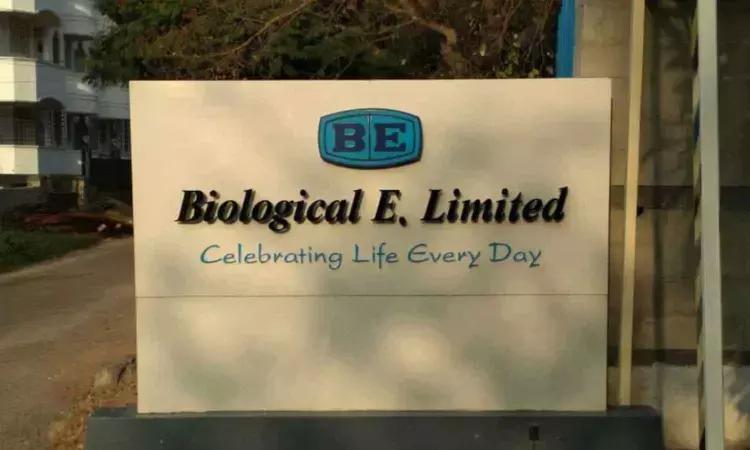- Home
- Medical news & Guidelines
- Anesthesiology
- Cardiology and CTVS
- Critical Care
- Dentistry
- Dermatology
- Diabetes and Endocrinology
- ENT
- Gastroenterology
- Medicine
- Nephrology
- Neurology
- Obstretics-Gynaecology
- Oncology
- Ophthalmology
- Orthopaedics
- Pediatrics-Neonatology
- Psychiatry
- Pulmonology
- Radiology
- Surgery
- Urology
- Laboratory Medicine
- Diet
- Nursing
- Paramedical
- Physiotherapy
- Health news
- Fact Check
- Bone Health Fact Check
- Brain Health Fact Check
- Cancer Related Fact Check
- Child Care Fact Check
- Dental and oral health fact check
- Diabetes and metabolic health fact check
- Diet and Nutrition Fact Check
- Eye and ENT Care Fact Check
- Fitness fact check
- Gut health fact check
- Heart health fact check
- Kidney health fact check
- Medical education fact check
- Men's health fact check
- Respiratory fact check
- Skin and hair care fact check
- Vaccine and Immunization fact check
- Women's health fact check
- AYUSH
- State News
- Andaman and Nicobar Islands
- Andhra Pradesh
- Arunachal Pradesh
- Assam
- Bihar
- Chandigarh
- Chattisgarh
- Dadra and Nagar Haveli
- Daman and Diu
- Delhi
- Goa
- Gujarat
- Haryana
- Himachal Pradesh
- Jammu & Kashmir
- Jharkhand
- Karnataka
- Kerala
- Ladakh
- Lakshadweep
- Madhya Pradesh
- Maharashtra
- Manipur
- Meghalaya
- Mizoram
- Nagaland
- Odisha
- Puducherry
- Punjab
- Rajasthan
- Sikkim
- Tamil Nadu
- Telangana
- Tripura
- Uttar Pradesh
- Uttrakhand
- West Bengal
- Medical Education
- Industry
Biological E gets CDSCO Panel Nod To study vaccine for 6- 8 weeks old infants

New Delhi: Reviewing the Phase I clinical trial report, the Subject Expert Committee (SEC) functional under the Central Drug Standard Control Organisation (CDSCO) has approved the vaccine maker Biological E to conduct a Phase II clinical trial of Diphtheria, Tetanus, Pertussis (Whole cell), Hepatitis B (rDNA), inactivated Poliomyelitis and Haemophilus influenzae Type b Conjugate Vaccine (Adsorbed) for 6- 8 weeks-old infants.
This came after the vaccine maker Biological E presented its proposal for the conduct of a Phase II clinical trial in 6- 8 weeks-old infants along with a Phase I clinical trial report.
The above vaccine helps to protect against diphtheria, tetanus, pertussis, hepatitis B, poliomyelitis, and serious diseases caused by Haemophilus influenzae type b.
Diphtheria toxoid is one of the safest vaccines available. Individuals with an anti-diphtheria toxin antibody level of more than 0.1 IU/mL are considered fully protected from disease. DTP-containing multi-antigen vaccines (Hep B, Hib, or IPV) are increasingly used in national immunization campaigns.
The tetanus vaccine, also known as tetanus toxoid (TT), is a toxoid vaccine used to prevent tetanus. Five doses are recommended during childhood, with a sixth given during adolescence. After three doses, almost everyone is initially immune, but additional doses every ten years are recommended to maintain immunity. A booster shot should be given within 48 hours of an injury to people whose immunization is out of date.
The pertussis vaccine is a vaccine that protects against whooping cough (pertussis). There are two main types: whole-cell vaccines and acellular vaccines. The whole-cell vaccine is about 78% effective while the acellular vaccine is 71–85% effective. The effectiveness of the vaccines appears to decrease by between 2 and 10% per year after vaccination with a more rapid decrease with the acellular vaccines.
Hepatitis B vaccine is a vaccine that prevents hepatitis B. The first dose is recommended within 24 hours of birth, with two or three more doses after that. This includes those with poor immune function such as from HIV/AIDS and those born premature.
The inactivated polio vaccine (IPV) was developed in 1955 by Dr Jonas Salk. Also called the Salk vaccine IPV consists of inactivated (killed) poliovirus strains of all three poliovirus types. IPV is given by intramuscular or intradermal injection and needs to be administered by a trained health worker.
The Haemophilus influenzae type b (Hib) vaccine is used to prevent invasive H. influenzae infections (usually caused by H. influenzae type b). It is in the vaccine class of medications. This activity describes the indications, mechanism of action, and contraindications for the Hib vaccine. Hib vaccine's role as a valuable agent in preventing early childhood meningitis and other complications of H. influenzae.
At the recent SEC meeting for Vaccines held on 14th and 15th December 2023, the expert panel reviewed the proposal presented by the vaccine maker Biological E to conduct a Phase II clinical trial in 6- 8 weeks old infants along with a Phase I clinical trial report.
After detailed deliberation, the committee noted the results of the Phase I clinical trial report and recommended the grant of permission to conduct a Phase II clinical trial as per the protocol presented.
Doctor of Pharmacy
Dr. Divya Colin, a Doctor of Pharmacy Graduate with extensive experience in clinical and hospital settings and confidently equipped with diagnostic and therapeutic skills. She also has spread out exposure to Oncology Departments in Mysore Medical College and Research Institute as Oncology Pharmacist. Currently she is building a career in clinical research and clinical data management. She has been a part of Medical Dialogue since January 2022.
Dr Kamal Kant Kohli-MBBS, DTCD- a chest specialist with more than 30 years of practice and a flair for writing clinical articles, Dr Kamal Kant Kohli joined Medical Dialogues as a Chief Editor of Medical News. Besides writing articles, as an editor, he proofreads and verifies all the medical content published on Medical Dialogues including those coming from journals, studies,medical conferences,guidelines etc. Email: drkohli@medicaldialogues.in. Contact no. 011-43720751


